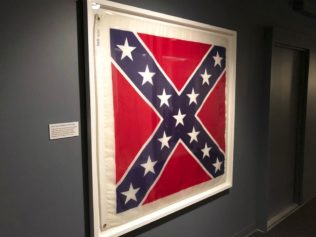South Carolina’s civil forfeiture program disproportionately impacts Black residents — especially Black men, an investigation by The Greenville News TAKEN project revealed.
The report, published in part earlier this month, found that seven out of 10 people who have property seized are Black, and 65 percent of all money taken by the police is from African-American males. What’s worse, the state’s Black residents are three times more likely to have their money and property seized than white residents.
The investigation is part of a series examining civil asset forfeitures across South Carolina and how they’ve been used to target Black residents while lining the coffers of local police departments.

The Taken investigation found that Black people carry cash more often, are stopped by police more often and therefore, lose their money to forfeiture more often than their white peers. (Getty Images)
“Shut up!” state Rep. Todd Rutherford, a Columbia defense attorney, said in response to the report’s findings. “The fact that they (Black residents) are being stopped is no surprise, but now, the unmitigated fact that they’re having their assets seized and taken by the government is appalling.”
Journalists behind the project spoke with legal and civil rights experts on the matter, who said the disparities can be tied directly to the state’s racial history. Jake Erwin, a defense attorney in Greenville, pointed to South Carolina’s legacy of economic punishment against Blacks and noted that one of first post-Civil War property crimes against African-Americans involved land.
“There’s a clear line from slavery to the Civil War and to civil rights to civil forfeiture,” said Erwin.
After his march through the South to Savannah, Ga., Union Gen. William T. Sherman promised newly freed Blacks would receive 40 acres of land from the more than 400,000 acres of confiscated Confederate land. That promise of economic independence was ripped out from from under them, however, after Abraham Lincoln’s successor, President Andrew Johnson, returned the land to its previous, slave-holding owners.
Heather Ann Thompson, a Pulitzer prize-winning author who researches race and the criminal justice system, noted that this action forced thousands of freedmen to work for their former owners, who often baited them into signing “usurious formal contracts.”
“There’s this long relationship of exploiting Black farmers in South Carolina,” Thompson told the newspaper.
Fast-forward 150 years, and such discriminatory policies, such as redlining and civil forfeiture, are still leaving the state’s Black residents at a disadvantage.
The Greenville News reports: “Black people are more likely to work jobs that pay in cash — housecleaning, yard work, food service — and white people are more likely to be the ones paying out that cash. To that end, Black people carry cash more often, are more often stopped by police and lose their money to forfeiture more often than their white counterparts, our investigation found.”
Vernon Burton, a professor at Clemson University, described civil forfeitures as biased tool used to police certain groups of people. He said such regressive polices tend to impact African-Americans more harshly because they generally have less to begin with.
Burton added that, “racial differences in policing are deeply rooted in the state’s history, a history that’s generally considered regressive on race issues.”
He and others like national NAACP director Ngozi Ndulue argued that crime and arrest rates alone do not explain away why most of the money seized are from Black folks.


